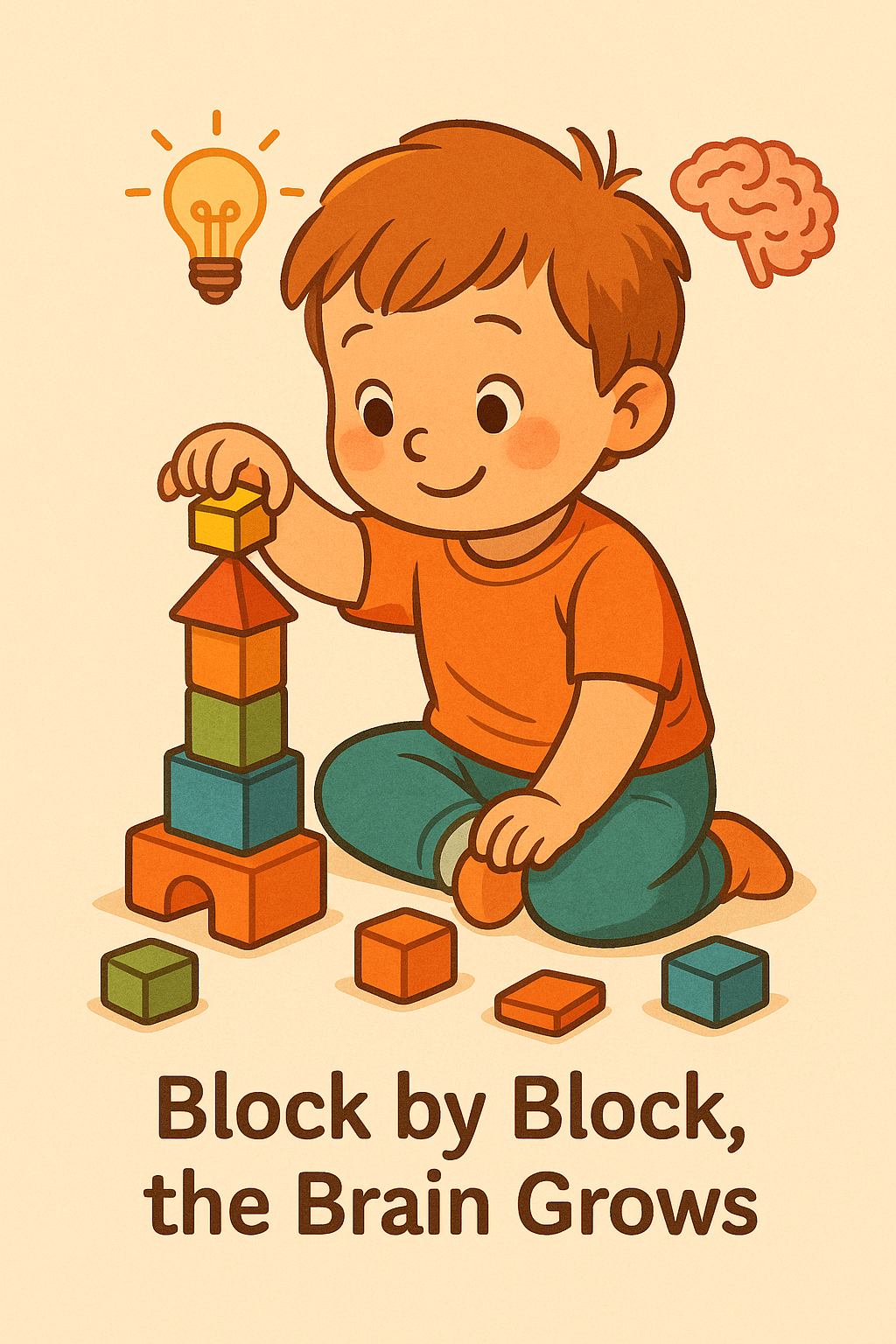
Building Minds with Blocks: How Block Play Supports Brain Development in Children
Share
🧱 Introduction
To the casual observer, children stacking colorful blocks might seem like simple fun. But behind those towers and castles lies powerful brain development. Block play, one of the most traditional and versatile forms of play, offers cognitive, spatial, mathematical, and social benefits supported by scientific research.
🧠 1. Enhancing Spatial Intelligence
Block play significantly strengthens spatial reasoning skills — the ability to mentally manipulate shapes and understand spatial relationships. A longitudinal study from Child Development (2013) found that preschoolers who engaged regularly in block construction scored 30% higher in spatial visualization tests later in school.
📌 Citation:
Verdine, B. N., et al. (2013). Associations between spatial skills and block play in early childhood. Child Development, 85(6), 1982–1998.
🧮 2. Early Math Skills Development
Stacking, sorting, counting, and matching blocks all promote mathematical thinking. Research published in Early Childhood Research Quarterly (2010) reported that structured block play correlated with better numeracy, measurement, and problem-solving abilities in kindergarteners.
📌 Citation:
Wolfgang, C. H., et al. (2010). The relationship between block play and math skills in early learners. ECRQ, 25(2), 107–117.
🗣️ 3. Language and Collaboration
When children build together, they use descriptive language ("bigger," "taller," "next to"), give instructions, and engage in cooperative dialogue. This strengthens both expressive and receptive language development. A 2016 study in The Journal of Research in Childhood Education demonstrated improved vocabulary scores after just 8 weeks of structured block play in groups.
📌 Citation:
Christakis, D. A., et al. (2016). Block play and language outcomes in preschoolers. JRCE, 30(2), 219–230.
🧩 4. Executive Function & Creativity
Planning and executing a structure demands memory, focus, impulse control, and cognitive flexibility — key elements of executive function.
Block play also encourages creative exploration, allowing children to test ideas, make mistakes, and problem-solve. This dynamic interplay helps build both left- and right-brain capabilities.
🎯 5. Long-Term Cognitive Benefits
According to a meta-analysis in Developmental Psychology (2020), children who participated in consistent block play during early childhood exhibited higher scores in IQ-related subtests (like working memory and processing speed) by ages 7–9.
📌 Citation:
Toub, T. S., et al. (2020). Cognitive benefits of guided block play: A meta-analysis. Developmental Psychology, 56(8), 1453–1471.
🧾 Conclusion
Block play isn’t just about fun — it's brain-building in disguise. From sharpening spatial skills to nurturing language and executive functions, blocks provide a hands-on, screen-free way to support early brain development. So next time you see a toddler stacking towers, remember: they’re not just playing. They’re growing smarter, one block at a time.
